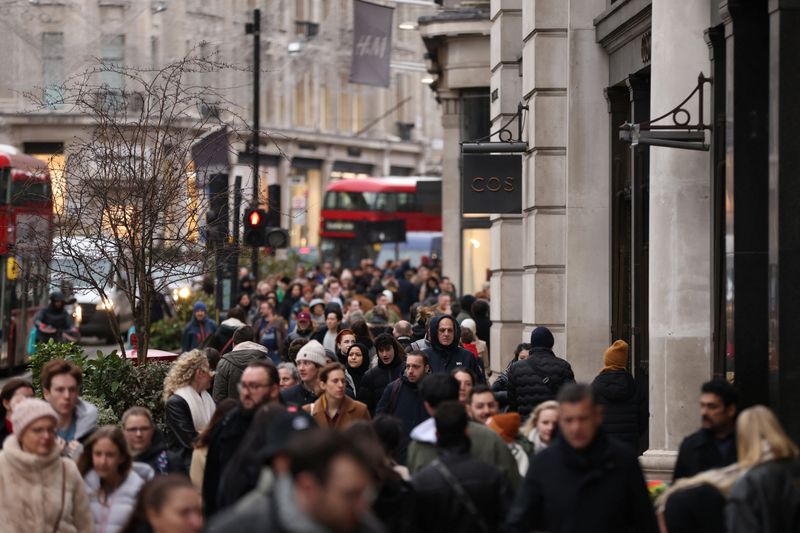
© Reuters. Shoppers walk along Regent Street during the Boxing Day sales, in London, Britain December 27, 2023. REUTERS/Hollie Adams/File Photo
LONDON (Reuters) – Prices in British shops rose at the slowest annual pace since May 2022 this month, the British Retail Consortium (BRC) said on Tuesday, adding to signs of easing inflation pressures ahead of this week’s Bank of England (BoE) policy decision.
The BRC said shop price inflation dropped to 2.9% in January from 4.3% in December, driven by heavier discounting of goods in January sales this year than in 2023.
Non-food prices were up 1.3%, the least since February 2022, while food prices rose 6.1% on the year – the smallest increase since June 2022 – as lower prices for tea and milk were partly offset by higher alcohol duties.
Mike Watkins, head of retailer and business insight at NielsenIQ, which provides data for the BRC, said lower wholesale costs were allowing supermarkets to cut the price of some goods.
“However, consumer demand remains fragile as most households are yet to feel better off after nearly 2 years of inflation,” he said.
Britain’s headline rate of consumer price inflation, which covers a wider range of goods and services than the BRC data, rose to 4.0% in December from 3.9% in November, its lowest since September 2021.
Even so, inflation has fallen faster than the BoE forecast at the start of November – largely due to a big drop in energy costs. Many economists expect the central bank to lower its near-term inflation forecasts when it announces its next interest rate decision on Thursday.
However, with inflation still double the BoE’s target, the central bank is likely to indicate it remains some way from considering cutting interest rates from their current nearly 16-year high of 5.25%. Financial markets see a first quarter-point cut in May or June.
The BRC data was based on prices collected between Jan. 1 and Jan. 7.


